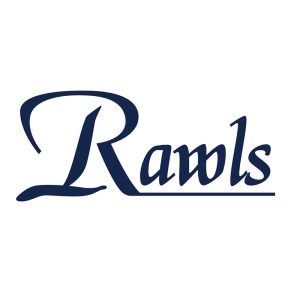The Importance of Professionalism in Family-Owned Auto Dealerships
In the current corporate landscape, family-owned enterprises are facing challenges as they vie for success against bigger conglomerates and nationally recognized brands. In the automotive industry, where consolidation is prevalent, family-owned dealerships are under significant strain to keep pace with their larger counterparts and stay relevant. One viable solution for family-owned dealerships to gain a competitive advantage is to adopt a more professional approach to running their business.
The Role of Culture in Family‑Owned Auto Dealerships
Successful family-owned dealerships or auto groups often neglect formalities that can lead to problems such as nepotism, inconsistent policies, and toxic family/business interactions. These issues can have a negative impact on performance and drive away valuable talent. Without top talent, family business owners will struggle to stay competitive, and the value of the business will decline rapidly. To remain competitive and grow the business, it is crucial to create an attractive culture that retains employees and customers while also performing well.
The Unique Advantage of Family‑Owned Auto Dealerships
At the NADA 2023 “Growth Strategies for the Family-Owned Business” workshop, Champ and Kendall Rawls discussed a unique approach for family businesses to succeed. Rawls suggested keeping the “family” aspect in a family-owned business as it can provide a competitive advantage over private and public companies. Additionally, leveraging the existing name recognition in the community can be beneficial. To achieve success, it is essential to promote your dealership(s) as a local family-owned business while also incorporating the formalities of successful mega dealers and public companies. This approach can help maintain the family aspect while still achieving growth and success.
Strategies for Professionalizing Your Family‑Owned Auto Dealership
Elevate the professionalism of your business by formulating, systematizing and transmitting your fundamental values. Construct a purpose statement, a future outlook and objectives and ensure that you and your team adhere to these indispensable principles. By applying this methodology, you can rest assured that your family enterprise will not only endure but also prosper.
The Benefits of Professionalizing Your Family‑Owned Auto Dealership
To professionalize your family business, it is advisable to develop job descriptions for all positions, identify and adhere to core values, and establish standardized processes and procedures. This approach will result in increased efficiency and effectiveness in running your business and also position your business as one that values its employees and customers, thereby standing out in your community.
“Professionalizing” your family business will mitigate emotional distractions allowing your people to focus on the purpose of their positions. By professionalizing your business, you are also building value in your business, which will support your long-term growth and succession strategy.
Consider the following as it relates to achieving your family and business vision.
8 Steps for Creating a Growth & Succession Strategy
- Determine your vision.
Your vision may be to get out of day-to-day so you can focus on strategic growth and mentoring, to spend more time on hobbies and less time at work, or a combination of both. Whatever it is, it will involve some form of growth and change.- What is the WHY behind what you are doing now and what you want to be doing in the future?
- Where do you see yourself in the next 5-10 years?
- Share your vision with your trusted advisors.
- Lean on expert advisors and trusted leaders to provide perspective and support based on where you want to go. Business, personal and family success is not a solo endeavor; it requires a team effort.
- Lean on expert advisors and trusted leaders to provide perspective and support based on where you want to go. Business, personal and family success is not a solo endeavor; it requires a team effort.
- Evaluate who and what will be impacted based on where you are now and where you want to grow and transition into.
- What resources do you need?
- What infrastructure is required?
- Develop a strategy with your team of advisors and key leaders to achieve your vision.
- How will you develop or acquire the resources needed?
- What is your one-year, two-year, three-year strategy?
- Who is driving each project and how frequently will you meet to review the strategy?
- Consider the possible, probable and potential issues that can impact achieving your vision such as:
- Unexpected health scare or death of the owner/key leader.
- Inflation, recession, supply chain, technology, political or regulatory issues.
- Conflict with business partners.
- Family issues influencing or impacting business decisions.
- Issues with strategic vendor(s) impacting business performance.
- Develop A, B and C plans, considering your strengths, weakness and outside opportunities and threats; so no matter what is thrown your way, you have options to fulfill your vision.
- Lean on your team of expert advisors to educate you so you can make well-informed decisions.
- Re-evaluate your vision and proceed where necessary through steps one through seven.
Kendall Rawls knows and understands the challenges that impact the success of a family-owned business. Her unique perspective comes not only from their educational background; but, more importantly, from her experience as a second-generation family member employee of The Rawls Group — Business Succession Planners.
For more information, visit seekingsuccession.com or email info@rawlsgroup.com.









